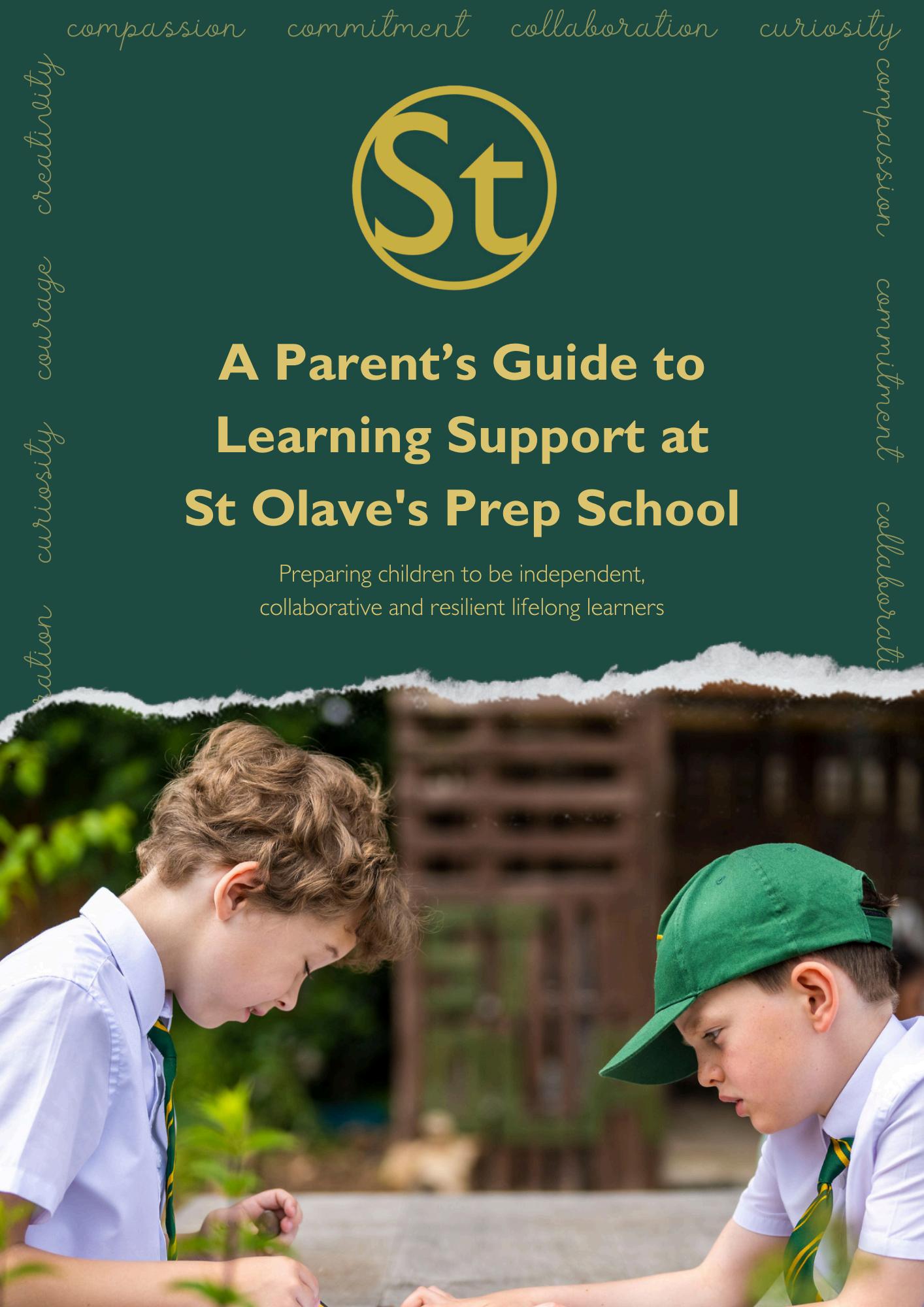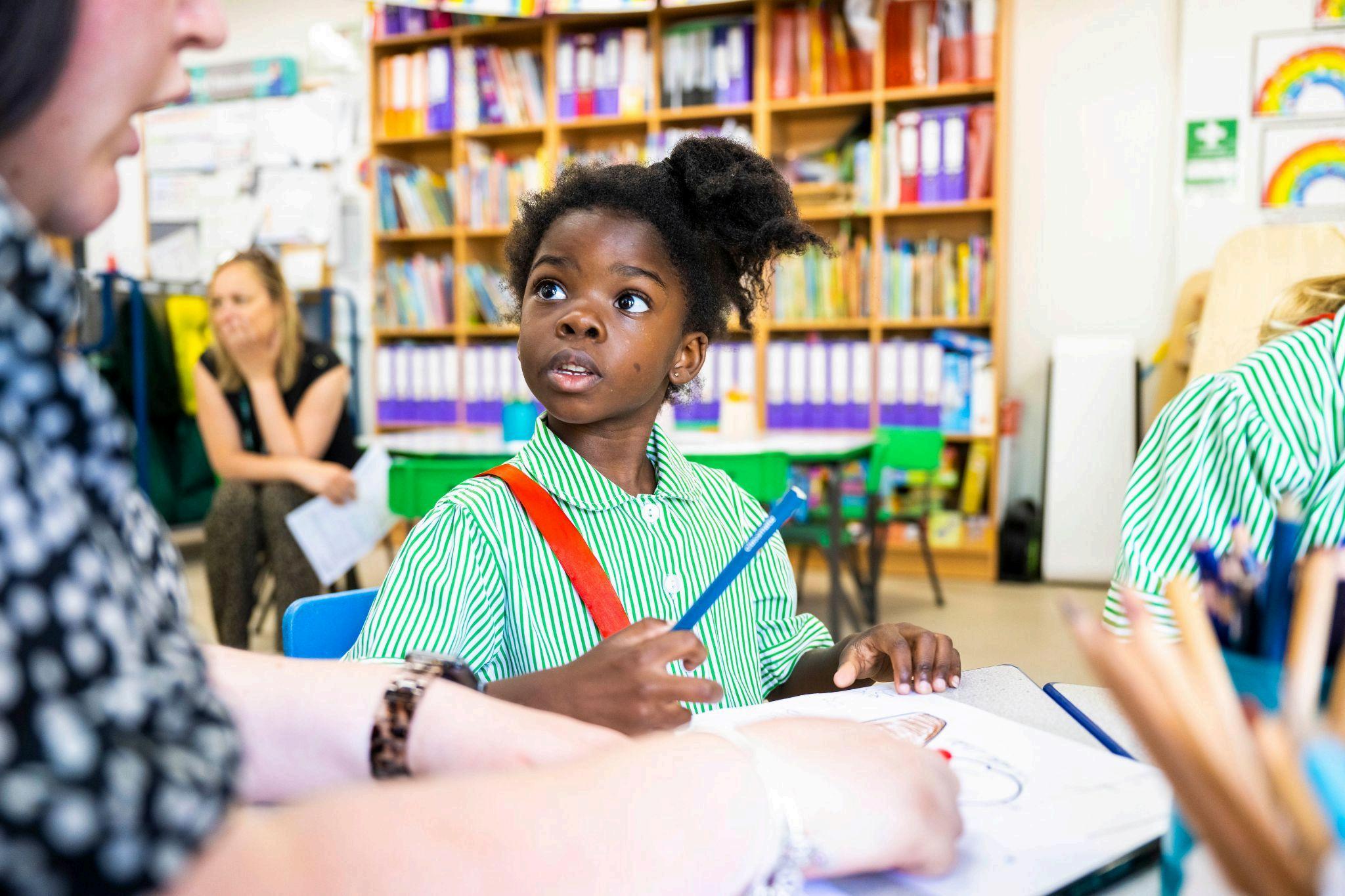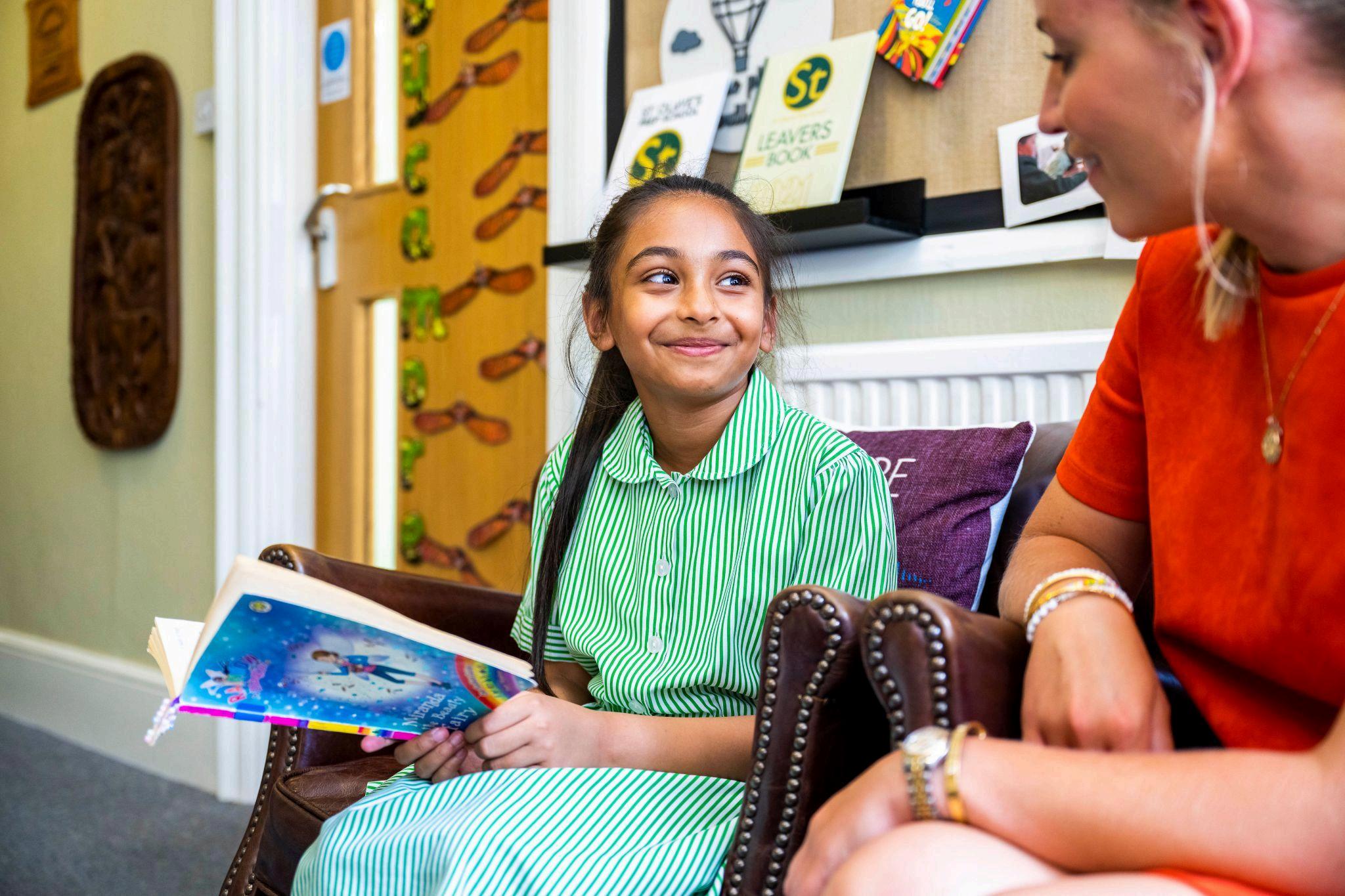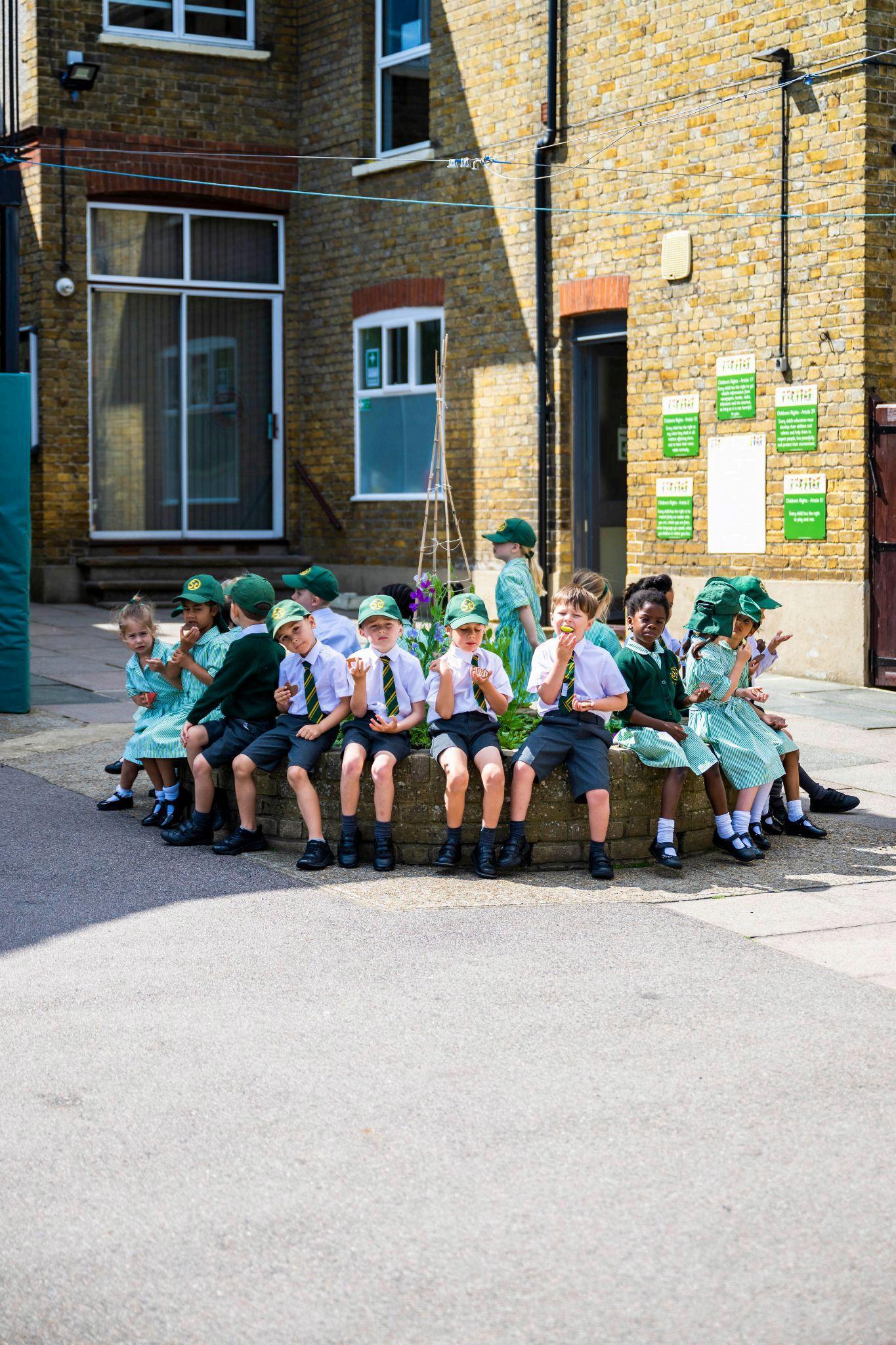

Learning Support at St Olave’s Prep School
Introduction
At St Olave’s Prep School, our vision and aims are to provide a broad and forward-thinking education which cherishes a child’s individuality whilst nurturing their happiness, confidence and passion; preparing children to be independent, collaborative and resilient lifelong learners.
The school provides a happy and nurturing environment. We treat every child as an individual and give all our pupils the opportunity to achieve their potential in academic, creative and sporting pursuits. We are committed to the development of children’s social and emotional skills, children’s self-esteem, their mental and physical health and wellbeing, and are committed to developing the children’s responsibilities towards themselves, others in school, the local and global community.
In our small classes, the vast majority of pupils’ needs are able to be met through High Quality Teaching which is adapted and personalised in order to fully support pupils’ learning needs. These adaptations and personalisation are known as Reasonable Adjustments. Some children need educational provision that is in addition to, or different from, this. These children will receive support with their learning which may take a variety of forms. They may be identified as having Special Educational Needs.
When a pupil at St Olave’s Prep School is identified as having Special Educational Needs, they are placed on the Special Educational Needs and Disabilities (SEND) Register and additional support is put in place for them through the Graduated Approach (the Assess, Plan, Do, Review cycle). This support and their progress is monitored closely and reviewed each term with their parents. Where necessary, the school will seek advice from external specialists, including Educational Psychologists, specialist teachers and speech and language therapists. It is important that the child and their family are at the centre of the provision for SEND and a close working relationship is maintained between school and home in order to achieve this.

What should I do if I am concerned about my child’s progress or wellbeing?
In the first instance you should always talk to your child’s class teacher about your concerns as they are responsible for the progress of the children in their class, including those who require additional support. They will be able to reflect on your concerns and share their views on your child at school. Should parents require further information or advice they can make an appointment to meet with the SENCo - Ms Sally Norris and/or the Wellbeing Lead, Mrs Pons.
How will the school let me know if they are concerned about my child’s progress or wellbeing?
The class teacher will contact you to discuss their concerns and talk about the support that the school has (or is going to) put in place. If the support is ongoing or your child is not progressing despite the additional support, the class teacher will invite you in again to meet with him/her and the SENCo and/or the Wellbeing Lead to discuss further strategies to support your child.
What is SEN?
Special Educational Needs fall into four broad categories:
➔ Speech, Language and Communication (SLCN)
➔ Cognition and Learning
➔ Social, Emotional and Mental Health (SEMH)
➔ Physical and Sensory Needs
A child may have difficulties in one or more of these areas that impacts on their ability to engage effectively in school life or is preventing them from making academic progress. These children are likely to have SEN and may be placed on the SEND register. Other children may have a need in one or more of these areas (e.g. a diagnosis such as dyslexia or ASD) but if they do not require anything other than reasonable adjustments in order to succeed in school, they would be placed on our Monitoring Register.
What is the SEND Register?
The SEND Register refers to the pupils within the school who have a Special Educational Need or Disability and who require significant support that is in addition to (or different from) their peers.
What is the Monitoring Register?
In addition to the SEND Register, St Olave’s Prep keeps a Monitoring Register. The Monitoring Register includes pupils with disabilities or diagnoses who do not require more than Reasonable Adjustments in order to be successful at school. It also includes pupils who are low attaining to ensure that their progress is carefully monitored and that additional support can be provided in a timely manner should it be necessary Pupils who are removed from the SEND Register will also be placed on the Monitoring Register for at least one term afterwards to ensure that they are continuing to make progress. The Monitoring Register is reviewed each term to ensure that pupils' needs are being effectively met; if necessary, pupils may move from the Monitoring Register to the SEND Register and vice versa or may be removed from the registers altogether if no further support/monitoring is required.

How does St Olave’s Prep decide who goes on the SEND Register?
Pupils are assessed at several points throughout the school year. Children who are not meeting expectations for their age group are identified and flagged for small group, time limited interventions in order to support identified learning gaps. Reasonable adjustments will be made within the classroom and wider school to support the child as necessary. The class teacher provides High Quality Teaching within class lessons, targeting areas of concern and these areas are discussed with parents. Parents/carers can discuss concerns about their child’s progress with the class teacher at parents' evenings or at other mutually agreed times. Class teachers will keep par full informed about the ha their child’ and discuss the support which
However, if classwork or assessments) satisfactory progress (or y needs), the class teacher interventions to support progr on the SEN Register.
It is important working at a level that is may still be developing their is considered as low average may indicate a special educational
What happens
Once a child the parents to identify impor them. Where appropriate views may be gathered bef be drawn up, which will evidence provision to support them
Classteachers ogress on the Pupil Suppor y attend the meeting (or meeting.

If a pupil’s pr ventions or if the child’s needs sought from external agencies (such as the Educational Psychologist or Greenwich STEPS) to help the child make additional progress.
What if my child needs more support than the school can currently provide?
If a child has been through at least three cycles of Assess, Plan, Do, Review and is still not making progress, or is requiring a considerable amount of additional support in order to make progress, then the school will consider if it would be appropriate to apply for an Education, Health and Care Plan for the child. Parents are able to apply for an Education, Health and Care Plan themselves at any point if they wish and the school will support them in whatever way they can and provide the relevant information to the assessing authority It should be noted though that school can only provide evidence of how a child presents at school, even if this is in contrast to what parents see at home.
What support does the school offer pupils with SEND?
In Class Support - with small class sizes, pupils receive a plethora of support within their classroom. As well as the classteacher, a teaching assistant is available to every class, to support pupils during lessons, pre-teach concepts and lead interventions. They may also work with the majority of the class while the class teacher provides targeted support for a group of pupils.
Speech and Language Support - Jennie Bishop, our Speech and Language Therapist is in school once a fortnight. She works directly with pupils who have been referred to her through the Greenwich Oxleas Trust referral process. She also supports staff with any speech and language concerns they may have for individual pupils within their classes and provides training for teachers and support staff.
Wellbeing Support
- Mrs Pons is our Wellbeing Lead and works with individuals and groups of children who need support with their social, emotional or mental health. The interventions she provides supports children alongside other, class-based, interventions and includes social skills & friendship groups, counselling sessions (e.g. Draw and Talk) and work on emotions. Pupils are also able to self-refer for any concerns they would like to talk to Ms Pons about.
Educational Psychologist - If a child is working significantly below expectations or is displaying significant social, emotional or mental health needs, the SENCo may discuss their provision with the Educational Psychologist (EP) linked to the school. If agreed with the EP, the child will be added to the waiting list to be seen by the EP on a school visit. The work the EP does with the child may involve observing them in class, carrying out assessments, meeting with parents and making suggestions to support them in school or at home.
External agencies - the school works with a range of external agencies such as Greenwich STEPs, Occupational Therapy, Physiotherapy and CAMHS to support the children at St Olave’s Prep. Where appropriate the school will make referrals to Local Authority Agencies and will also work with agencies employed privately by families (e.g. O.T.)

